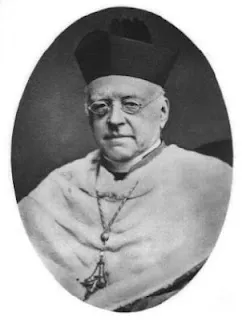“There is another class of crimes too frightful even for the imagination of other lands; which St Paul, in detailing the vices of the heathens, has not contemplated; which were unknown to the savage, until taught by the convict – crimes which are notorious – crimes that, dare I describe them, would make your blood to freeze, and your hair to rise erect in horror upon the pale flesh;” -Very Rev William Ullathorne (1838)

Transportation to New Holland
The transporting of convicts to Australia was in response to no longer being able to ship them to North America.
The original convicts were able to earn their freedom, being gifted land and the means to become successful Freemen.
However, as the colony grew, the plight of the convict became that of a slave.
For a mere, one Pound, a convict could be purchased and worked hard without a care in the world.
There was little motivation to allow a convict to earn their freedom.
Even if freedom was earned, at which point, they were not allowed to own land, had to work for wages, and had less rights than a normal colonist.
The pressure mounted for a review as to the merits of Transportation.
That its terrors do not operate to the prevention of crime in either country; that, as a place for the reformation of criminals, it is worse than useless; and that it is, in fact, neither more nor less than a nursery of vice and depravity of the worst description. -Thomas Arnold, Norfolk Island Deputy Assistant Commissioner (1837)
1837 Molesworth Committee Inquiry
One of the main concerns, during the Inquiry, was that of, "Unnatural Acts".
Of sexual conduct between men and animals.
Especially, the exploitation of young boys. Many of whom were referred to with Female names and called "Sods".
With the colony population being two-thirds Male, it meant that any sexual behaviour would turn to what was available.
If found guilty of unnatural acts, meant death, so the normal punishment was 50 to 100 lashes of the whip for "Indecent Exposure".

“ Let a man be what he will when he comes here, he is soon made as bad as the rest; the heart of a man is taken from him, and there is given to him the heart of a beast ”
As the Colonies became established, the justification for Transportation became more of a burden, than a blessing.
- There was an ongoing financial cost to England to transport convicts
- There was no distinction between criminals, so a petty thief would be beside murderers, and, if sent back to England, would possibly now be a hardened criminal.
- The punishments of hard labour (in heat up to 115 F/46 C) or lashings seemed to be metered out for small matters, and did not deter the behaviours.
- Convicts were prone to sodomise others convicts.
- Crimes were still being committed.
- "Their bread is loathsome to their eyes , and their meat unto their soul." For, even if you feed a man, without hope, it means nothing.
Thus you perceive that, though it was once the interest of those penal colonies to make convicts free after a time, and to give them land, it is now, on the contrary, the interest of every free man there, and most the interest of those who possess most, and who consequently wield the greatest influence, to have as few convicts obtain their pardon as possible, So that now-a-days, a convict, except in some very extraordinary case, never obtains his pardon until his sentence is worked out.
Modern Recidivism
the tendency of a convicted criminal to reoffend.
In our modern world, many Western countries have outsourced their prison systems to private companies.
42.7% of prisoners return back to prison within 2 years of being released.
The construction and maintenance of prisons cost the Australian taxpayer over $6 billion in the last year – an increase in $2 billion over the past five years. This equates to $405 per prisoner per day, or $147,900 per year. It is expected that this number will continue to increase as does the number of prisoners.
At which point do we hold an inquiry as to the purpose of the prison system?
A corporation, by its very nature, is designed to maximise profits for its stakeholders.
Its only Moral, or Ethical, obligation is to comply with any regulations so as not to affect profit.
Everything else is Propaganda.
So, how do we benchmark whether our Prison system is achieving the outcomes of our modern society?
This question is beyond my post, but it came to mind as I reviewed the documents of the 1830s and 1840s.
Are prisons to Punish, Rehabilitate, or Both? Or, do we also need to add, "Profit Motive", due to making our "Convicts", a commodity.
Another question that I ponder is,
"If our Governments are smart enough to know how fast the prison system will grow and, the reasons for them filling, then why aren't their steps to prevent this from happening?"
References;
https://www.unfitforpublication.org.au/cesspools/90-1837-38-molesworth-committee-inquiry
https://nla.gov.au/nla.obj-448164941/view?partId=nla.obj-448170612#page/n20/mode/1up
https://diplomatist2.blogspot.com/2012/09/bishop-william-ullathorne-osb.html
https://ipa.org.au/research/rights-and-freedoms/the-cost-of-prisons-in-australia-2023#:~:text=The%20construction%20and%20maintenance%20of,does%20the%20number%20of%20prisoners.
https://diplomatist2.blogspot.com/2012/09/bishop-william-ullathorne-osb.html
https://en.wikipedia.org/wiki/William_Bernard_Ullathorne